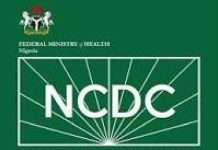
Notable stakeholders in the pharmaceutical sector and their counterparts in nursing and midwifery have called on the Coordinating Minister of Health and Social Welfare, Prof. Ali Muhammad Pate, to be democratic in his approach to tackling the country’s healthcare challenges, while also prioritising the revitalisation of primary healthcare and health insurance.
Speaking in a recent interview with Pharmanewsonline, President, Nigeria Academy of Pharmacy (NAPharm), Prince Julius Adelusi-Adelusi urged the minister to pragmatically engage all healthcare practitioners in repositioning the health sector.
Adelusi-Adeluyi, a former health minister, said, “The new minister is fit for purpose and he’s a good choice. He will have many challenges but the first thing he needs to do is to bring all the practitioners in the health sector together.
“Over the years, a lot of time has been spent needlessly in settling disagreements among various professionals in the health sector. This time, the minister should bring the various professionals in the health sector together because I know if we can bring them together, we can address all the health issues in the country. Then he also needs to be democratic in his choice of people for the MDAs in the ministry”.
Sharing a similar view, Chairman of the Lagos State Chapter of the National Association of Nigeria Nurses and Midwives (NANNM), Comrade Nurse Julius Awojide, congratulated the newly appointed Pate, urging him to be fair in discharging his duties.
Awojide, who spoke at Lagos NANNM recent conference, said: “We call on the minister of health and other appointed personnel in the health sector to ensure equity, fairness, and justice in the discharge of their duties towards all healthcare practitioners. The involvement of nursing in all decision-making in the healthcare sector is very important and I want to say that this is the pattern of the law.”
Also speaking with Pharmanews, the Director, Business School Netherlands Nigeria, Prof. Lere Baale, said Pate’s first concern should be revitalisation of primary healthcare in the country. This, he said, is crucial because primary healthcare affects a larger percentage of the populace.
Baale, who is also the secretary-general of NAPharm, added, “Aside from the revitalisation of primary healthcare, the second thing that should be taken seriously is the health insurance scheme. The scheme, as it is now, needs revitalisation. The scheme should be something that should be handled at the state level where many citizens will have access to it.”
He also outlined other areas of concern for the health minister, saying, “Digitisation of healthcare is very important because everybody cannot be accepted in the hospital at the same time. People don’t have to go and queue in the hospital when some cases can be resolved through electronic means – email, among others – and that is why we need to have proper identification.

“Workforce development is very critical, and that is training. It is important to train and retrain pharmacists, not just for them to play their roles in Pharmacy but also in administration and leadership, and this is now more critical than ever before.
“Another thing that is important for us to achieve medicine security is the issue of disease surveillance and control. It is important to have the date of the diseases, the pattern, where they are more prevalent, and what we need to do. With these, it will be easier for professionals to manage the situation when the need arises.”
Also setting agenda for the health minister, Chairman of New Height Pharma Limited, Pharm. Paul Enebeli, said Pate must be understand that the health sector has become much more complex, hence there is need to democratise its leadership.
According to Enebeli, the healthcare landscape has gone beyond doctors saying “my patient,” noting that the paradigm has changed to “our patient”.
“The patient now belongs to every professional in the health sector,” he said.
The New Height chairman further cited the challenges in obtaining forex for pharma manufacturing among other critical issues the new minister should urgently address.
“We all know how difficult it is now to get forex, we also know how important the pharmaceutical industry is to the health sector and healthcare delivery. So the minister should work with the Central Bank of Nigeria to ensure that the pharma industry has access to forex.
“The minister should also work with relevant stakeholders to curtail the open drug market and ensure effective drug distribution and good pharmaceutical practice. Medicine availability should be taken as a security issue. We need a policy to back drug availability and ensure that drugs are produced locally. The burden of unpaid debt should also be resolved,” he stated.
On his part, the Managing Director and Chief Executive Officer, Merit Healthcare Limited, Dr Lolu Ojo charged the minister to ensure that the government patronises local pharmaceutical companies. He also urged him to put measures in place to ensure that government agencies and hospitals do not owe the companies.
Lamenting the country’s excessive dependence on importation for medicines and other essentials that are needed in the country, Ojo stressed that Nigeria has a huge potential, especially considering its demand base.
In his words, “Our population that people think is a problem is one of our advantages. This is one of the things that Indian and other foreign companies see that make them come to Nigeria with their products. Roche Pharma, for instance, is one of the top 10 pharmaceutical companies in the world. It is a Swiss company. Switzerland has about seven million people, but the company’s turnover in 2022 was about 67 billion dollars.
“If you multiply this by the current exchange rate of dollar to naira, it will be several trillions of naira, and that is just one company in a country with a population of about seven million. Imagine a company making about seven trillion in turnover in a year. Now, how can the pharma companies in Nigeria be vibrant when the biggest debtor to the pharmaceutical industry is the government?
“When I was the chairman of Research Documentation and Industry Liaison for the Pharmaceutical Society of Nigeria (PSN), we took our case to the minister and senate, but the situation has not changed much as expected.
“However, for the pharma industry to thrive, there must be patronage. The local industry must be patronised. The government at all levels and citizens must patronise the local industry. I am also sure that if well-positioned, the pharma industry can take this country out of the doldrums.”
Prof. Baale however charged the private sector to support the government in building a vibrant health sector, saying the government cannot do it alone, noting that there is no government in the world that has successfully singlehandedly managed a healthcare system, whether in America or Europe.
“There is a need for private-public partnership. The government needs to partner with the various professionals in the country with industrial pharmacists to produce drugs, community pharmacists, hospital pharmacists, and all other professionals in the healthcare system generally”, Prof Baale said.










